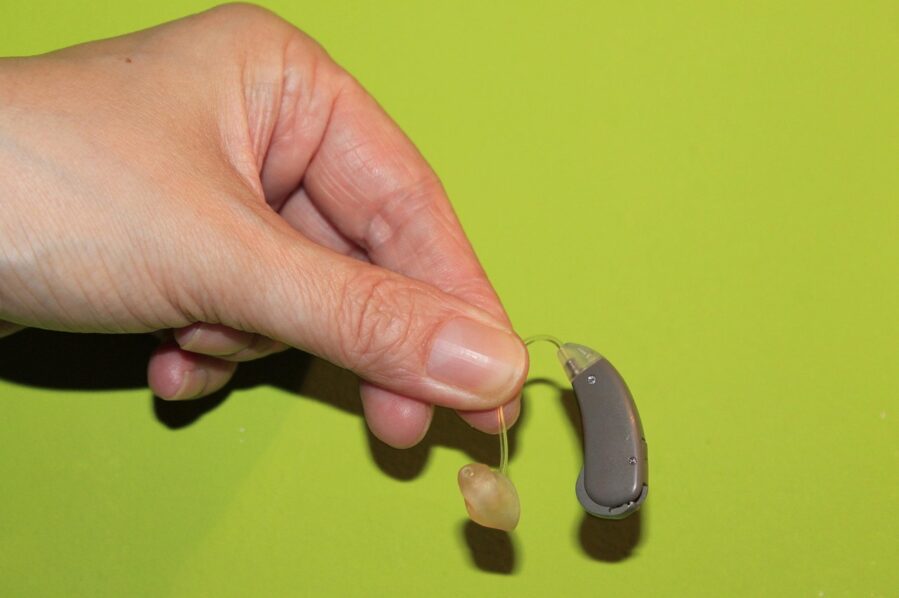A new clinical trial comparing hearing aid delivery methods reveals that while over-the-counter options provide positive outcomes, traditional audiologist-fitted devices yield significantly better results for adults with mild to moderate hearing loss.
The comprehensive study, published in JAMA Otolaryngology-Head & Neck Surgery, also found that expensive high-end hearing aids provide no measurable advantage over more affordable basic models—a finding that challenges industry pricing structures and could reshape how millions approach hearing healthcare. With hearing loss affecting approximately 44 million American adults and projected to reach 74 million by 2060, these results offer timely guidance for consumers navigating the rapidly evolving hearing aid market.
The randomized clinical trial, conducted at the University of Iowa and Vanderbilt University Medical Center, examined how different service delivery models and technology levels affect real-world patient outcomes. Researchers followed 245 older adults with mild to moderate hearing loss for seven weeks after being fitted with hearing aids through different service models.
Professional Services Yield Better Results Despite Lower-Cost Alternatives
The study compared three distinct service models: traditional audiologist services (AUD) where hearing aids were fitted following best practices, a hybrid model (OTC+) where audiologists provided limited services for over-the-counter devices, and a pure over-the-counter model (OTC) where participants independently used devices without professional support.
The results showed clear advantages for professional fitting services. Participants receiving full audiologist services reported significantly better outcomes on the primary measure—the Glasgow Hearing Aid Benefit Profile (GHABP)—than both the OTC+ and OTC groups.
Dr. Yu-Hsiang Wu, the study’s lead researcher, and his team found that participants in the audiologist-fitted group were also more likely to wear their hearing aids consistently. The odds of participants reporting they used their hearing aids “all the time” were 3.25 times higher for the AUD group compared to the OTC+ group and 2.51 times higher than the OTC group.
One notable finding was that limited professional services (OTC+) provided no advantage over the completely self-directed OTC approach, suggesting that minimal professional intervention may not be worth the additional cost.
High-End Devices Offer No Additional Benefit
Perhaps the study’s most surprising finding concerns hearing aid technology levels. Despite significant price differences between high-end hearing aids (approximately $4,400 per pair) and low-end models (approximately $1,100 per pair), researchers found no significant differences in outcomes between them.
Across all outcome measures, high-end devices with advanced features performed similarly to basic models. This finding challenges the common industry practice of charging premium prices for advanced technologies that may not translate to meaningful real-world benefits for people with mild to moderate hearing loss.
Implications for Consumers and Healthcare
The study offers several key takeaways for the millions of Americans with untreated hearing loss:
- Traditional audiologist services provide superior outcomes but at higher cost
- Over-the-counter options still produce generally positive results
- High-end hearing aid technology may not justify its premium price
- Limited professional services (OTC+) offer no advantage over completely self-directed approaches
- All service models improved speech communication and reduced hearing handicap
These findings come at a pivotal time when hearing healthcare is undergoing significant transformation. The FDA’s creation of an over-the-counter hearing aid category in 2022 has expanded access to more affordable devices, but questions remain about their effectiveness compared to traditional models.
What Makes Professional Services Better?
What might explain the superior outcomes of audiologist-fitted devices? The researchers note that professional services include comprehensive hearing assessment, precise device customization through real-ear measurements, and personalized counseling—factors that appear to contribute to better outcomes despite their higher cost.
However, it’s important to note that while the audiologist-fitted devices performed better, the over-the-counter options still produced positive results. The mean satisfaction scores for OTC options approached 4 on a 5-point scale, indicating that participants were generally satisfied with these more accessible alternatives.
“While OTC+ and OTC were effective, they did not achieve the same outcomes as AUD. As high-end and low-end HAs yielded similar outcomes, support for the higher cost of high-end HAs was not identified for individuals with mild to moderate hearing loss,” the researchers concluded.
Future Directions for Hearing Healthcare
This research raises important questions about the future of hearing healthcare. If audiologist services provide the best outcomes but remain costly and inaccessible for many, how can the industry bridge this gap? And if expensive hearing aid technologies don’t provide measurable benefits, will manufacturers adjust their pricing strategies?
The researchers acknowledge several limitations of their study, including the use of simulated OTC devices rather than actual over-the-counter products, which may not capture the full range of options available on the market. Additionally, the study participants were randomly assigned to groups rather than self-selecting their preferred service model, which may not fully represent real-world decision-making patterns.
Nevertheless, this research provides valuable evidence for consumers weighing their options in an increasingly complex hearing healthcare landscape. For the millions of Americans with untreated hearing loss, the message is nuanced: professional services offer superior outcomes, but over-the-counter options represent an effective alternative that could significantly improve hearing health accessibility for those unable or unwilling to pursue traditional pathways to hearing care.
If our reporting has informed or inspired you, please consider making a donation. Every contribution, no matter the size, empowers us to continue delivering accurate, engaging, and trustworthy science and medical news. Independent journalism requires time, effort, and resources—your support ensures we can keep uncovering the stories that matter most to you.
Join us in making knowledge accessible and impactful. Thank you for standing with us!

